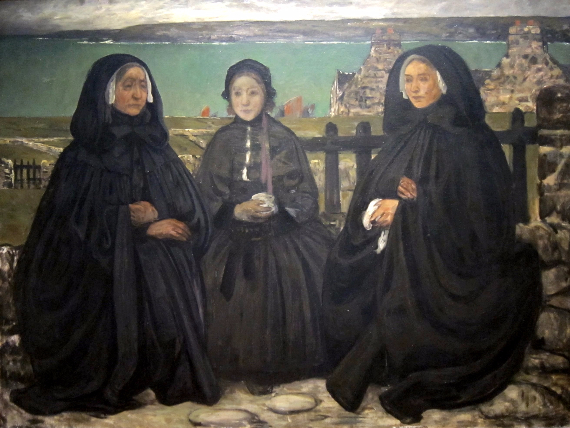The summer that we lived in Florida accidentally, my husband’s mother’s friend’s son hanged himself in his Montana art studio. I am close with my mother-in-law, but I hardly knew her friend. I’d met her son just once. He’d lived in New York and studied art before moving west. He moved for the cheap housing, the sky and landscape, maybe a girlfriend. I’d met him at a party a couple of years before. He was New York artist, young, successful, charming. He’d worn a cowboy hat.
They sat a sort of Shiva for him, my mother-in-law and three of her friends, though none of them are Jewish or believe in God. They called it Shiva, though the body wasn’t there.
For days, there was a round of women in and out and drinking, talking. I came by with our two small children every day. I spent years of my life thinking I would be a member of a room like that by dying. That I would be the thing no one was talking about, all anyone was thinking. I spent years imagining what those rooms might be like with me not there.
Instead, I brought a two-month-old, a toddler. When I walked into that room, I brought the joy. I had never paid much attention to small children until I had them. I’m not sure I understood the appeal of other people’s babies until I brought mine into that room. I sat and talked and listened to these women mostly as they watched the toddler, passed the baby to one another, squished on her, kissed her, all of them crying; they breathed her in.
The friend whose son had died was quiet mostly. Her face splotched and swollen, her drink full and always in her hand. There was a parade then of people who had also lost their children. My husband’s mother lives in a small town with a close-knit circle of friends. Three of the couples, in a group of maybe thirty people, had lost kids. One after the next, the couple whose daughter had been hit by a car on her bike when she was in college, the couple whose seven-year-old, also hit by a car, when she was playing in the driveway outside their house; another woman, divorced for decades, her son driving home from active duty, who fell asleep and hit a pole. I don’t know, couldn’t ask the details, but they filed one after the next into the house. They brought wine, weed, bourbon, clasped hands and escaped into other rooms to share wisdom, knowledge none of us who hadn’t lost like this wanted any part of. They didn’t look at me when they came in.
I have to go, I said to no one. My husband’s mother nodded at me and I left.
At the funeral, I rigged an outfit up for nursing, black leggings and a black nursing tank under a black dress. I watched these families who lost children. I watched the mothers, the way they stood, the way they drank, the way they sat. I sat with the one who lost her daughter when she was 20, hit-and-run driver. She would have been 40 then.
You’re a writer? She said. I shrugged, my black dress bunched up at my chest, looking down at my nursing baby.
I’m this right now, I said.
Their daughter was their only daughter.
What do you write? She said.
Fiction, I said, shrugging. It felt small and stupid; for months, I had been trying to remember what sort of silly person I must have been to think fiction writing was a good idea.
She was beautifully dressed in black silk pants and a high-necked black sleeveless shirt, a dark green and blue scarf folded around her neck. She touched it two times, just at the edges, deliberate, careful. She had short hair and her arms were thin and sculpted, long and tan. My leggings fell to the middle of my calves, and I’d pulled them up to my rib cage beneath my tank top to firm out my still sagging belly. My right breast was still bare.
My mother-in-law had told me that they kept their daughter’s room the same these years they haven’t had her, a cork board and her bed and comforter, pictures on the wall.
Your mother must be so happy, said this woman. She knew vaguely of my mother, who also lived in this small town and doesn’t have that many friends.
She is, I said, interrupting, eyes scanning for the toddler who had run across the room. I didn’t tell her that I hadn’t spoken to my mother since I was six months pregnant with the baby, that she hadn’t met her, that she maybe never would.
I didn’t tell her I wasn’t sure I should be allowed to be a mother.
I didn’t tell her how very scared I was.
My mother-in-law had told me this woman and her husband travelled often, months in Europe and East Asia. Her husband is a lawyer and she runs his office. They host exchange students and always have great wine.
My mother-in-law had told me that for two years this woman walked back and forth along the street where the car hit her daughter, that sometimes she sat, still, in a big floppy hat, on the grass and stared at the passing cars.
I wanted to ask her how to love our babies properly, how to survive them. I wanted to ask her about whole worlds I didn’t want to be a part of, but that I wanted to have hold of just in case.
I heard you guys were in Greece this summer, I said.
She looked down at my hot-cheeked, suckling baby.
I don’t do anything interesting, she said.
Image: Wikipedia


